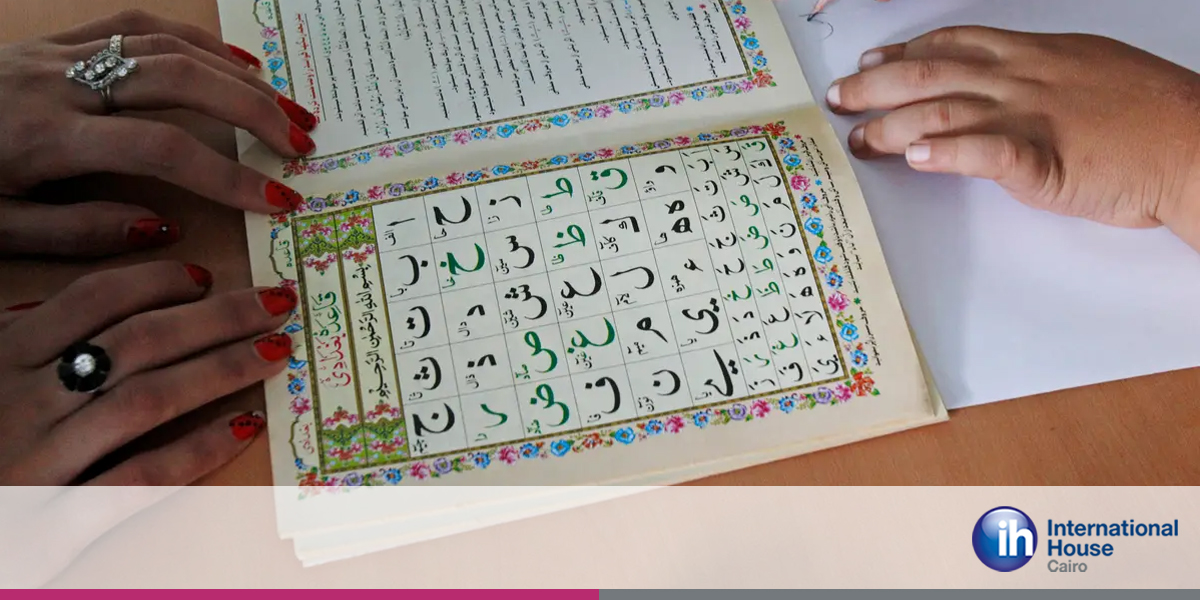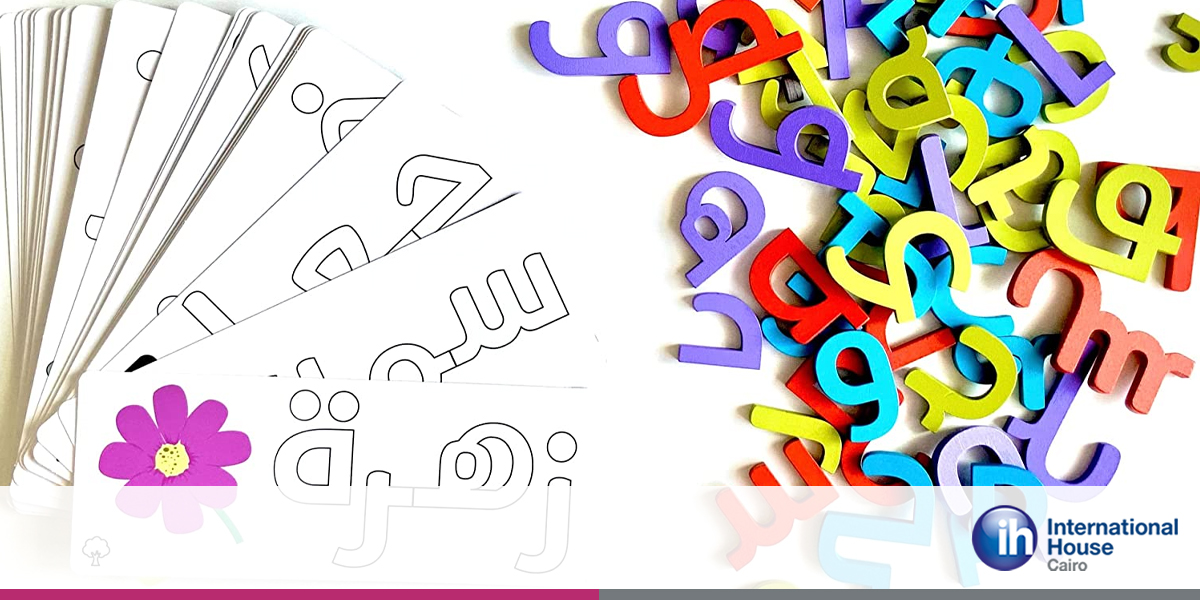Arabic is one of the 6th official languages of the United Nations (UN), With 25 countries speaking Arabic and 420 million people communicating with it around the world.
It’s, therefore, easy to see why it’s an in-demand language that offers multiple chances to boost your career and personal growth.
But what are the advantages and disadvantages of studying Arabic?
Here you’ll find out! Let’s start.
1. Advantages of Studying Arabic
1.1. Offering Endless Opportunities
Learning Arabic can open up new possibilities for both personal and professional growth.
With a GDP of approximately $7.1 trillion, the Arab region has much to offer the world market.
Even more, the market isn’t limited to a few jobs as people may think. Actually, Learning Arabic opens the door to many different jobs, whether in the Arab world or outside it.
For instance, the Arabian Gulf makes huge investments in areas like construction, banking, telecommunications, and tourism.
Translating and interpreting are also among the most common businesses for Arabic language learners which you can find inside or outside the Arab region.
In addition, there are several other fields that require Arabic speakers including intelligence and foreign services, consulting, education, bilingual business, commerce, and media.
Another important fact is that Arabic speakers earn good salaries.
For example, Glassdoor reports that the salary of an Arabic foreign language instructor can start between $79,110 and $167K per year.
1.2. Makes the perfect Challenge!
Speaking Arabic gives you an air of intelligence and sophistication.
Having that Arabic knowledge will make you stand out since few people from the West speak the language.
In addition, challenging yourself to learn Arabic is an excellent idea because it helps you learn about another country and its people. And Arab countries have so much to offer!
Not to mention the fact that literature lovers will be captivated by reading classics not just in translation, but also in their original language.
Whatever your goals are, this language will help you succeed, whether they are career-related, personal, or educational.
1.3. A means of Intercultural Understanding
When talking about the pros and cons of studying Arabic, cultural understanding is one of the main topics to discuss.
It is a common rule: understanding language = understanding culture.
Language is an important part of any country’s cultural identity.
One who learns Arabic gains a deeper understanding of the region’s cuisine, literature, music, and art.
It’s even better if you get the opportunity to visit an Arab country!
The simple fact of being a foreigner in an Arabic-speaking country makes you an ambassador, which promotes intercultural understanding.
While you’re there, an Arabic native speaker will be delighted to help you learn the language once he or she hears you speak a few words in Arabic. They will also be delighted to hear more about your culture and talk about their own.
In addition to all that, learning Arabic gives you the flexibility to learn other languages.
This is due to its relation to other world languages such as Farsi or Persian, Turkish, and Urdu, which will make learning them easier.
All that widens up your cultural knowledge and forms a deep understanding of it.
1.4. Makes the Best Year Abroad of All Time
Studying this language means that travel will be easier in Arabic-speaking countries.
These countries are divided into four main regions: Arabic of the Maghreb (North Africa), Egyptian Arabic (Egypt and Sudan), Levantine Arabic (Lebanon, Syria, Jordan, and Palestine), and Iraqi/Gulf Arabic.
You can visit your desired country, interact with its people, sightsee, work, and feed your soul with cultural diversity.
Egypt, as an excellent example, has been one of tourism’s most popular destinations for years.
But you can be different from other tourists! Think of how much more fulfilling your experience will be if you don’t have to rely on tour guides for communication. You’ll get an entirely different perspective of the country.
1.5. Discovering a Whole New World
Studying Arabic will let you see by yourself how rich and beautiful Arab culture is, which then will correct many wrong theories and perspectives that Western cultures may have.
Delving deeper into the nuances of this language removes any misunderstandings or misrepresentations of the Arab culture.
Yet another reason why studying Arabic is great is how much you will learn about the people themselves and how they think.
Operating with people as a foreigner is one thing, but communicating with them as someone who is acquainted with their way of thinking is another.
You get to see not only the Arabic-Speaking world with the eyes of an outsider but with the eyes of an inhabitant. Thus, getting a whole new perspective!
Speak Arabic Fluently with IH Cairo Arabic Courses!
Arabic is the sixth most spoken language in the world with 420 million people around the world speaking the language.
2. Disadvantages of Learning Arabic
To compare the pros and cons of studying Arabic, here are 5 disadvantages to see and find out how to overcome them.
2.1. Insufficient Resources
If you decided to study Arabic in a foreign country such as the United States, Canada, or any country in Europe, you might find a small number of resources to help you out in your learning process.
But in this fast-paced changing world, this is not a problem anymore.
The Internet can make it a lot easier for you to study Arabic. You can get access to online courses and resources in no time.
Online courses that depend not only on academic context but also let you live that language in real life are the best.
In this way, you’ll be able to learn this fascinating language through real-life situations and gain communication skills faster, in addition to getting the right resources to learn from.
As a result, the problem of insufficient resources will not even arise when the right courses are available, like the ones IH Cairo offers here.
2.2. A Rich Language with Thousands of Words
Arabic is familiar with its rich vocabulary.
Not only it has a huge amount of words, but a single word can also have different meanings with different pronunciations and interpretations.
All this adds to the language’s awesomeness!
However, understanding and communicating with the language isn’t all about words, it’s about putting those words in context.
Once you master the language learning methods and systems, you’ll gain vocabulary at a pace that will amaze you.
2.3. No Shortcuts to Learning Arabic
Like any other language, Arabic needs some time to get used to it.
You’re learning an entirely different alphabet than your mother tongue, with many differences such as phonetic ones.
So, it’s ok to take your time.
Also, as there are many differences, there are similarities.
For instance, both English and Arabic use lingual forms, such as nouns, verbs, sentences, etc. and they express similar functions, like description, demand, analysis, etc.
Anyway, consistency is the mother of mastery.
So, if you want to master this language, be consistent, and step by step you’ll get the reward you ask for as long as you put in the effort it needs.
2.4. Feeling a Little Isolated
Knowing more about the pros and cons of studying Arabic brings us to this important factor.
You may find people around learning languages such as French, Spanish, or German, while it’s not likely to come across anyone learning Arabic.
Arabic is not commonly learned compared to other popular European languages.
But that’s a chance to set yourself apart from others and find your true passion.
However, if you’re worried about finding study buddies, courses are an excellent way to find them.
It is actually the simplest way to find people who have similar goals and who may face the same challenges as you, regarding all different levels.
You are simply united for the definite purpose of learning Arabic regarding different interests such as work or personal intents.
IH Cairo offers these kinds of Arabic courses where you meet and interact with tutors and other learners to ensure effective communication while learning.
2.5. Focusing Mostly on Teaching Modern Standard Arabic (MSA)
An obstacle that might face you while studying Arabic is that many classes focus exclusively on MSA, excluding dialectal variations altogether.
Due to the use of MSA only on formal occasions, it can be challenging to use it in daily life conversations.
MSA is important in knowing the actual basis of the language and the grammatical rules and sentence forms, while Arabic dialects are what people actually use in their conversations whether spoken or written.
That’s why you need to choose your courses wisely. You can get into a Modern Standard Arabic MSA course, an Egyptian Colloquial Arabic ECA class, or a Combined MSA & ECA Course.
3. Transcending the Challenges of Studying Arabic
After reading the above pros and cons of studying Arabic, you may have realized that every disadvantage of the Arabic language can expose its strengths and reveal its virtues.
Having to single out its resources and find fellow students whose targets are the same as yours ensures quality over quantity.
Its rich vocabulary asserts diversity.
Taking appropriate time to learn shows the language’s significance and the rich experience you’ll live.
All these strengths accompanied by the best possible classes let you overcome what you may call challenges in learning this language.
And because you don’t want to be limited to one type of course, IH Cairo offers an array of options, which include online, face-to-face, and private lessons, as well as MSA, ECA, and combined programs.
All the details you need to embark on this special journey are right here!
What’s Next
With the global economy expanding into new countries, bilingual employees will be in high demand and companies already began competing for them.
After seeing all these pros and cons of studying Arabic, we conclude that this language is a very special and beneficial one to learn.
From offering a variety of opportunities to taking you into an entirely new yet historical side of the world, Arabic certainly leave an influence on you.
Instead of letting someone else tell you about this influence, experience it yourself.
Check out our range of Arabic courses and discover their benefits for yourself.
Frequently Asked Questions (FAQs)
It actually depends on your preferences and reasons for learning the language.
Arabs use Modern Standard Arabic (MSA) for formal purposes such as professional academic uses and in governmental institutions.
Most people know Modern Standard Arabic, but they don’t actually use it in their everyday lives.
What they use in their daily lives is dialects, like the Egyptian one.
The easiest Arabic dialect and the most common one is the Egyptian dialect.
That’s because Egypt has a huge influence on Arabic media and entertainment throughout the Arabic-Speaking region.
Know more about Modern Standard Arabic here, and more about Egyptian Colloquial Arabic here.
No, it just needs commitment and an embrace of its depth and richness.
In fact, Arabic is actually fun to learn if you’re willing to see it from a different perspective.
It’s a Poetic Language… with extraordinary words and fine internal rhythm.
It’s perfect for literature lovers… whether classic or modern writings.
Its calligraphy is a completely separate artwork.
On the whole, it’s a unique language and learning how to simplify it will help you miles away on the road to mastering it.
Contextual learning is all about immersing learners in the language. In that sense, you learn Arabic through day-to-day activities.
For example, you can learn through songs, books, movies, or conversations. In this manner, you’ll be able to understand the language through real-life situations and even apply your understanding to your own experiences.
As a result, you can imagine how meaningful this learning system is since it employs fun and interactive methods to ensure that learners retain information.
That contextual learning that IH Cairo relies on speeds up your Arabic learning process.
Improve your Arabic faster with IH Cairo!
We provide well-designed materials and qualified teachers who can simplify the language for you to make visible progress in a short time.





